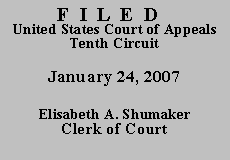

| UNITED STATES OF AMERICA, |
|
| v. | |
| ALBERTO ROJAS, a/k/a Eliezer Fernandez-Serrato, |
The district court acquitted Mr. Rojas on Count One. The jury found him guilty on Counts Two through Six. As for Count Seven, the jury acquitted him of the methamphetamine charge but convicted on the heroin charge. He was sentenced to 188 months' imprisonment. He appeals that sentence. Mr. Rojas's appellate counsel, Jeffrey Edelman, filed an Anders brief, see Anders v. California, 386 U.S. 738 (1967) (court may grant counsel's motion to withdraw after counsel files a brief exploring possible avenues of appeal and demonstrating that all lack merit), and Mr. Rojas responded by filing a pro se brief. The government has declined to file a brief. We agree with Mr. Edelman that the record presents no nonfrivolous basis for an appeal, and we therefore grant his motion to withdraw and dismiss this appeal.
I. DISCUSSION
Mr. Rojas raises two contentions in his response to his attorney's memorandum: (1) the methamphetamine that the district court attributed to him was not actually his; and (2) the 142 grams of methamphetamine attributed to him was not pure. We reject these contentions.
Regarding the first contention, the district court found that the evidence presented by government witness Samuel Yarbro connected Mr. Rojas to the 142 methamphetamine found in his house, even though the jury had acquitted him of the methamphetamine charge. That finding was permissible. See United States v. Watts, 519 U.S. 148, 157 (1997) ("[A] jury's verdict of acquittal does not prevent the sentencing court from considering conduct underlying the acquitted charge, so long as that conduct has been proved by a preponderance of the evidence."); United States v. Magallanez, 408 F.3d 672, 684-85 (10th Cir. 2005) (same).
Mr. Rojas's second contention is also meritless. The district court did not find that the 142 grams of methamphetamine discussed at sentencing was pure. The defendant had possessed in his house 221.9 grams of methamphetamine which, according to the testimony of a DEA chemist, was 64% pure. The amount of methamphetamine (actual) was therefore 64% of 221.9 grams, or 142 grams.
The only other argument that we need address is contained in Mr. Edelman's brief to the court. It suggests that the district court may have applied the Guidelines in a mandatory, rather than an advisory, manner, in contravention of United States v. Booker, 543 U.S. 220 (2005). But the court noted at sentencing that the Guidelines are advisory. We therefore reject this argument.
Because the record and briefs reveal no nonfrivolous issue, Mr. Rojas is not entitled to relief.
We DISMISS this appeal and GRANT the motion of Mr. Edelman to withdraw as appellate counsel.
ENTERED FOR THE COURT
Harris L Hartz
Circuit Judge
*.After examining the briefs and appellate record, this panel has determined unanimously to honor the party's request for a decision on the briefs without oral argument. See Fed. R. App. P. 34(f); 10th Cir. R. 34.1(G). The case is therefore ordered submitted without oral argument. This order and judgment is not binding precedent except under the doctrines of law of the case, res judicata, and collateral estoppel. It may be cited, however, for its persuasive value consistent with Fed. R. App. P. 32.1 and 10th Cir. R. 32.1.